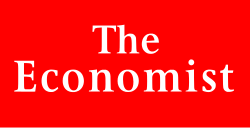
Jan. 2, 2021
WHEN COVID-19 first began to spread around the world in the spring of 2020, a health emergency risked triggering an economic and financial crisis. America’s financial plumbing seized up as companies scrambled for cash, dumping even their holdings of usually safe Treasuries. Companies and investors the world over rushed into dollars. The bottom fell out of the oil market as demand collapsed. In April the futures price for West Texas Intermediate crude went negative, dipping to a mind-boggling -$37 per barrel.

As countries locked down they experienced their deepest downturns in recent memory. Yet financial panic was averted. The banks stayed remarkably resilient. Part of that is a consequence of regulation after the global financial crisis: had they been run as they were in 2008, meltdown might well have ensued. But huge fiscal stimulus, government credit guarantees and central-bank action also prevented many losses from crystallising in the first place. The Federal Reserve stepped into Treasury and corporate-bond markets, a sign of the growing importance of capital markets as a source of credit. The stimulus helped revive spirits on Wall Street, even as Main Street suffered: by August, and again towards the end of the year, the S&P 500 stockmarket index was hitting record highs. Enthusiastic retail investors flooded in. The exuberance was at first concentrated around the sorts of companies, such as those in tech and health care, that did well out of the pandemic. But as news of an effective vaccine broke in early November, it rippled out to emerging markets.
The economic recovery has been uneven. China alone among large economies is likely to have grown in 2020. Thanks to the generosity of its stimulus and a flexible labour market, America surpassed economic forecasts, seeming to avoid the scars seen in previous recessions. Many emerging countries, meanwhile, had less fiscal room to offer big handouts and as a consequence may suffer more lasting economic damage.
Wherever you are, though, the pandemic will shape the economic outlook for years to come. Governments have gone deeply into the red, and face huge public-debt burdens. Inflation rates are subdued, as they have been for the past decade, but some economists are starting to worry that stimulus and demographic trends could prompt a comeback. Corporate zombies may haunt the economic landscape. But the pandemic may not have brought only bad news for the economy. Businesses adopted new technologies and processes, which could boost productivity, and long-term growth prospects.
In finance covid-19 accelerated digitisation, shifting payments and banking from the physical to the virtual sphere. The rising financial clout of tech-savvy millennials could hasten the digital transformation. But with fintechs’ rising market share came greater scrutiny. The listing of Ant Group was meant to be the world’s biggest initial public offering, until it was forced by Chinese regulators to halt its flotation at the last minute. Many central banks have started to think seriously about launching their own digital currencies; one began to be tested in China.
The further opening of China’s financial system drew in Wall Street firms, and signalled its intent to catch up with America and, perhaps over time, to challenge the dollar’s dominance. In November Joe Biden, America’s president-elect, chose Janet Yellen, a former head of the Federal Reserve, as his treasury secretary. In addition to contending with the rise of China, she faces the task of ensuring the economic recovery is smooth. It should help that, after months of wrangling, Congress passed a second stimulus package, worth $900bn, on December 21st—although President Donald Trump has so far refused to sign it into law, claiming that the government should make much bigger direct payments to Americans than the package proposes.
Covid-19 was not the only big shock on governments’ and financiers’ minds in 2020. Climate change loomed large. Governments and companies set emissions goals, and issued more green bonds; banks adopted emissions targets. A widespread system of carbon prices, though, remained elusive.


